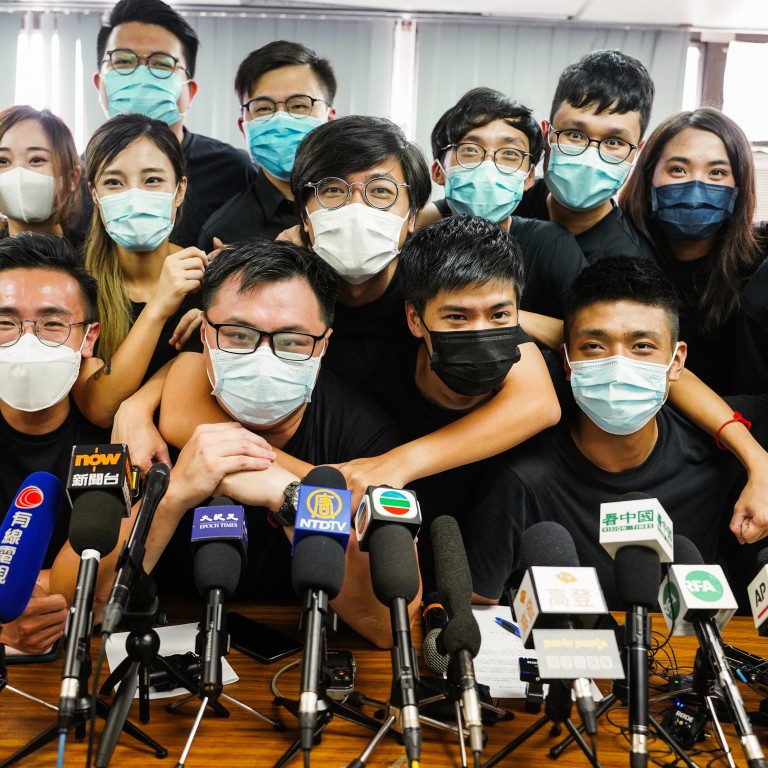
Explainer | Why have Hong Kong’s opposition figures been charged with subversion and does the camp now face total wipeout?
- On Sunday, 47 opposition figures were charged with conspiring to subvert state power
- Prosecutors say their election strategy of attempting to win a majority in the Legislative Council was part of a plot to overthrow the government
Here are the key details of the largest prosecution mounted under the security legislation.
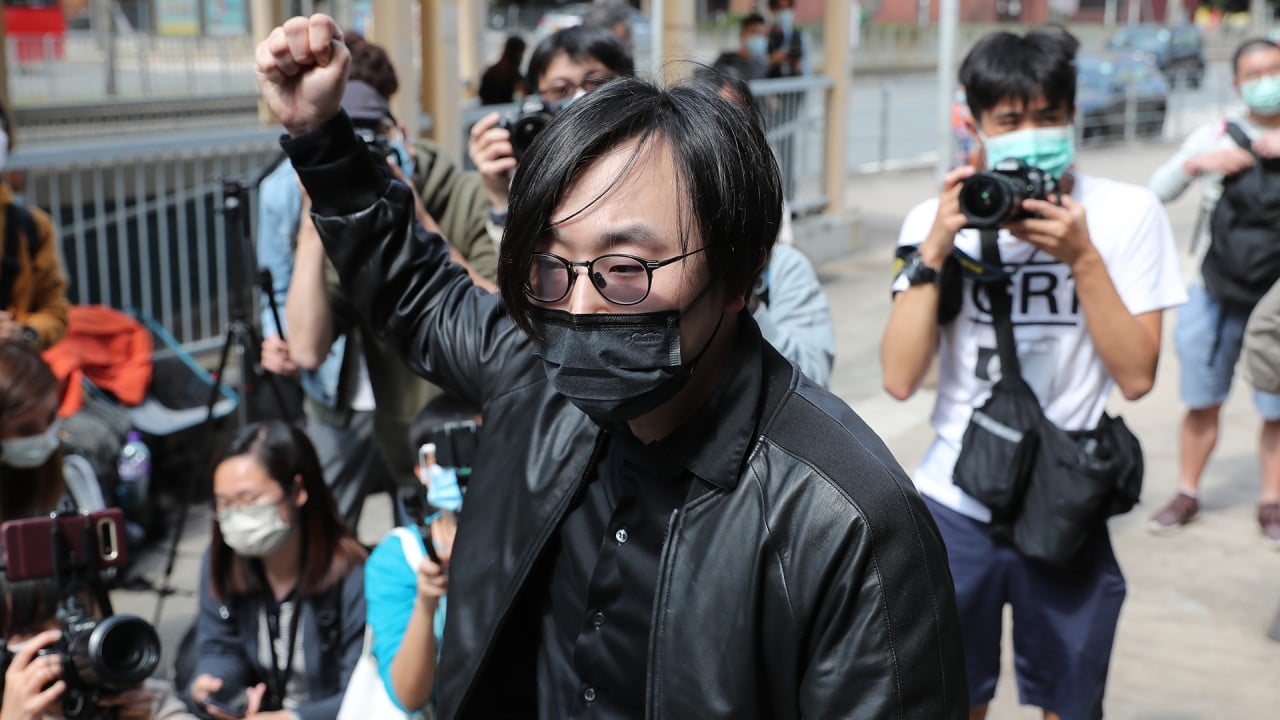
06:05
47 Hong Kong opposition activists charged with subversion under national security law
What are opposition activists accused of?
It was not the first time the opposition in Hong Kong held internal primaries to shortlist their best candidates to compete in official elections. There were at least two run-off polls for the 2007 Legislative Council by-election in the Hong Kong Island constituency, and the 2012 chief executive polls.
But the 2020 primary drew an unprecedented scale of attention – and also attacks from the authorities – because of the opposition’s ambitious “35-plus” plan: to win a majority in the legislature riding on the anti-government sentiment triggered by the protests against the now-withdrawn extradition bill the year before.
Benny Tai Yiu-ting, a legal academic and leading opposition figure, who first drafted the strategy last March, said at the time that a majority would give the camp a “massive constitutional weapon” to press the government to address their demands by vetoing the budget.
Beijing official calls for Hong Kong opposition figures to be ‘strictly punished’
In an article, “The 10 steps to real ‘mutual destruction’ – the fate of Hong Kong”, he wrote last April, he suggested the government could be forced to dissolve Legco if the opposition vetoed the budget after winning a majority.
Tai said if the camp continued to secure the majority in the next election and vetoed the budget for a second time, it would paralyse the government and force the chief executive to resign. Under the Basic Law, the chief executive must step down if the budget fails to win lawmakers’ support for the second time.
Last July, more than 610,000 Hong Kong voters took part in the primary election – representing 13.8 per cent of the registered voters and exceeding the organisers’ target – with snaking queues seen all over the city. Localist candidates who publicly vowed to veto the budget largely triumphed, beating traditional pan-democrats seen as more moderate.
What offences were they charged with?
The 47 opposition activists have been charged with violating Article 22(3) of the national security law by conspiring to “subvert the state power”.
The clause states that anyone who “organises, plans, commits or participates in” acts which seriously interfere in, disrupt, or undermine the performance of duties and functions by the local and central governments by force or threat of force or other unlawful means with a view of subverting the state power shall be found guilty.
But on Monday, court documents did not set out what unlawful means the activists had adopted.
People found guilty of this offence can be sentenced to life in prison, with a range of other punishments also available, from short-term detention to not fewer than 10 years behind bars.
Here’s what we know, and don’t know on how far Beijing will go in reforming Hong Kong’s politics
What do prosecutors say?
According to court documents, prosecutors said the plan to take control of the legislature at the elections was part of a wider push to paralyse the government, as the group aimed to “indiscriminately” block any government budgets or public expenditure, forcing the chief executive to dissolve Legco and ultimately causing the city leader to resign.
Article 50 of the Basic Law, the city’s mini-constitution, says the chief executive may dissolve the legislature during their term in office if Legco refuses to pass a budget or any other important bill introduced by the government.
But Article 52 further states the city leader must step down if the bills are rejected a second time by a new legislature formed after its predecessor’s dissolution.
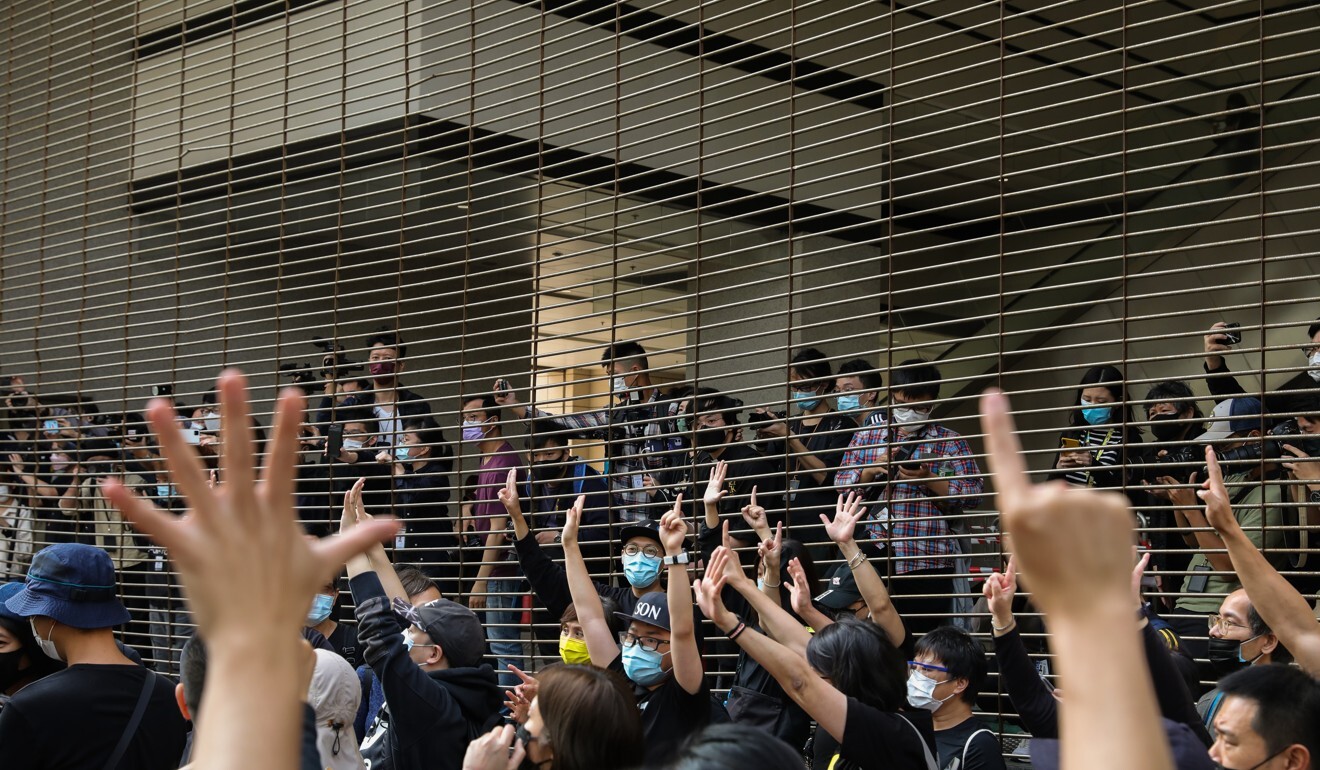
Prosecutors argued the candidates in the primary had pledged to carry out the scheme if they became legislators, at the expense of their responsibilities to discharge their lawful duties under Article 73 of the Basic Law, which among other things, include to “examine and approve budgets”.
They also accused the organisers of procuring such agreements from election hopefuls, and also “inciting, procuring, inducing or causing others to stand or not to stand as candidates in the election”.
According to police, documents signed by hopefuls running in the Kowloon East and New Territories West were found at the organisers’ office.
The papers were said to bind candidates to this course of action should they be elected, but to also agree to stop all electioneering activities if they did not obtain sufficient votes in their respective constituencies during the primary.
Reveal of Beijing’s political inoculation plan for Hong Kong looms at ‘two sessions’
Who have been charged and why have others not been charged?
A total of 55 opposition activists – including the organisers and all participants of the primary – were detained by police in January, but only 47 of them were charged on Sunday.
The eight who were not charged had their bail extended to May 4. They are: James To Kun-sun and Roy Kwong Chun-yu, two former lawmakers of the Democratic Party, health sector’s Joseph Lee Kok-long, Lau Hoi-man and Ricky Yuen Wai-kit, human rights lawyer John Clancey, who helped organise the poll and the first American arrested under the national security law, as well as two lesser-known candidates, social worker Jeffrey Andrews and Lee Chi-yung, of the Association of Parents of the Severely Mentally Handicapped.
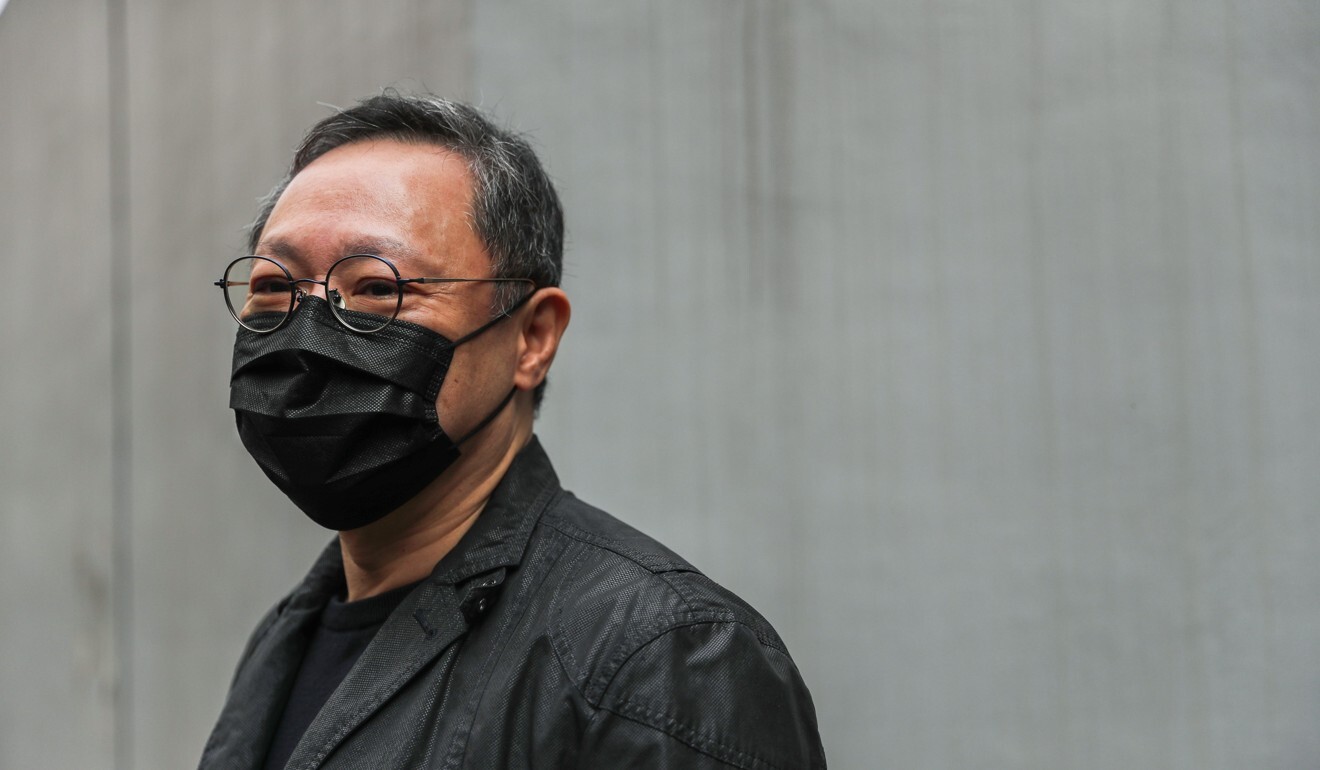
How did the police decide whom to charge?
The force did not issue a statement, but the Post learned that officers did not yet have sufficient evidence to charge the eight who had their bail extended. Police have not ruled out bringing charges in the future.
Asked if authorities were attempting to divide the opposition, James To said the move to charge some of his colleagues was “incomprehensible”. He refused to comment further.
Ahead of the primary, a group of localists – including Gwyneth Ho Kwai-lam, Lester Shum and Eddie Chu Hoi-dick – signed a joint statement in which they vowed to use the budget veto as a means to press the administration into responding to demands made by protesters during the civil unrest, which include an independent investigation into police’s handling of the movement.
Some candidates from the traditional parties were wary of signing, fearing it would give officials the ammunition to disqualify them in the future. But Civic Party hopefuls eventually did sign the statement.
Hong Kong elections to proceed this year but official in dark over format
Only one candidate running in the health service sector, Winnie Yu Wai-ming, who signed the statement in question – was charged on Sunday. The other three, Ricky Yuen, Lau Hoi-man and Joseph Lee, did not sign, with Yuen and Lau openly criticising the “mutual destruction” strategy in media interviews.
However, all but two Democratic Party candidates were also charged, even though the party did not sign the statement.
According to police, papers found in the poll organiser’s office showed that candidates running in the Kowloon East and New Territories West had agreed to use their vested power to vote down the budget if they entered Legco.
Democrat Andrew Wan Siu-kin was running in New Territories West, while party chairman Wu Chi-wai was running in Kowloon East.
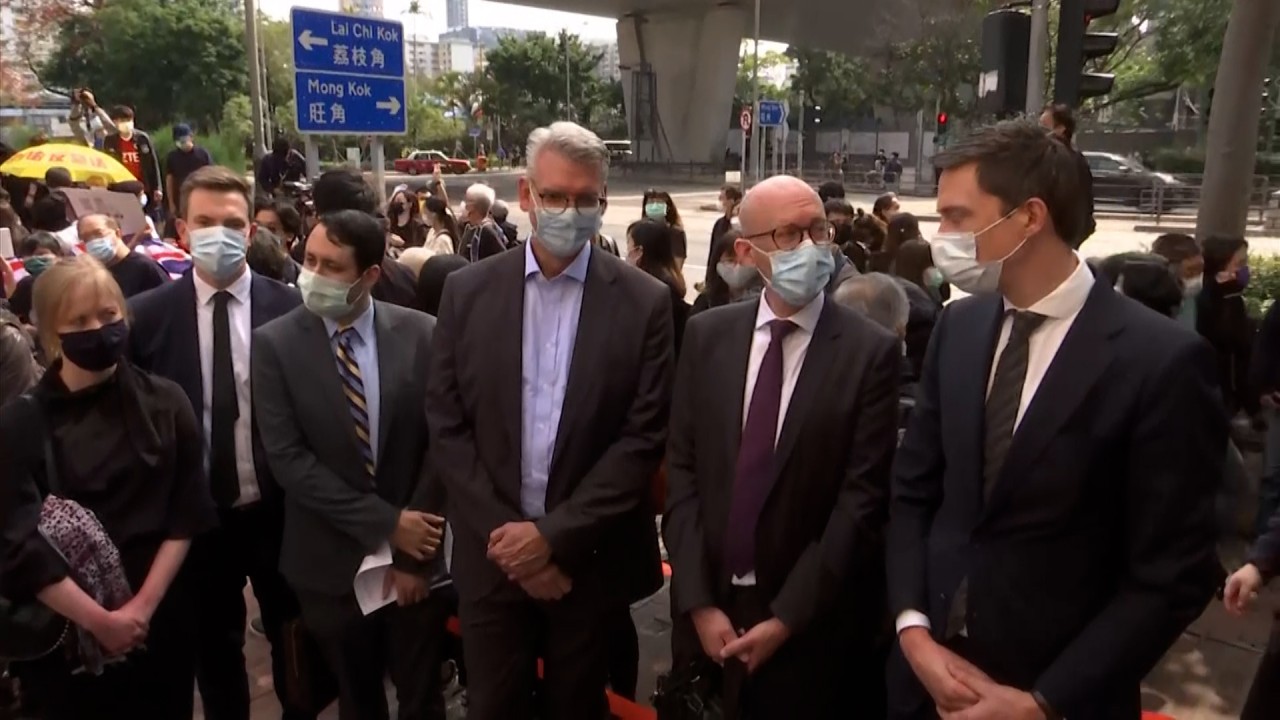
01:43
Foreign diplomats show support for Hong Kong activists detained under national security law
Police also said Democrat Helena Wong Pik-wan, who lost her bid in Kowloon West, had “publicly and boldly confirmed that they would comply with the scheme after the results of the primaries were released and undertook not to stand in the official election”.
But Democrat Lam Cheuk-ting, Council Front Claudia Mo Man-ching, the League of Social Democrats’ Jimmy Sham Tsz-kit and “Long Hair” Leung Kwok-hung, as well as independent Mike Lam King-nam were also charged, even though none of them signed the joint statement.
The police charge document made no mention of Lam Cheuk-ting, Leung and Mo, except to note their participation in the primary.
According to police, Mike Lam, who lost the primary, signed up for the official race and “plotted to step in to be the replacement of the candidates whose validity were being questioned by the returning officer and who might eventually be disqualified”.

